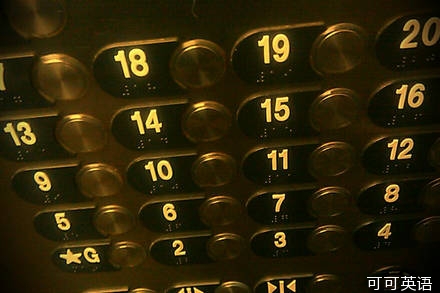Today's program is about an effect that not only have we all witnessed, but have participated in. Haven't we all been on an elevator and noticed that just about everyone stops talking when they get on? Why do we do that? You can be having a perfectly pleasant conversation with someone, and as soon as you get on an elevator, you just feel like you'd better shut up. Then, as soon as the doors open, everyone resumes conversation.
今天的节目是关于一个我们不仅曾经目睹过,而且亲身体验过的现象。当我们都在电梯上的时候,你有没有注意过电梯上升时所有人都停止了说话?为什么我们会这么做?你或许正在和某人进行非常愉快的交谈,而当你走上电梯的时候,你立刻感觉到你最好闭上嘴。随后,当电梯门打开的时候,大家又恢复了交谈。
Primatologists, or people who study primate behavior, have a term for this. It's called the “elevator effect,” though it doesn't occur only on elevators. It happens whenever a group of primates, like humans, is brought into a situation where escape is temporarily impossible.
研究灵长类行为的灵长类动物学家有一个术语来描述这个现象。它被称之为“电梯效应”,尽管它不仅仅发生在电梯上。它常常发生在一群灵长类动物身上,比如人类,当他们被带入一个暂时不可能逃脱的位置时。
It's thought to be a kind of safety mechanism: as long as nobody talks, nobody is going to risk getting in a fight when there's no way to spread out. The elevator effect keeps a lid on potential problems before they start.
这被认为是一种安全机制:只要没有人说话,就不会有人在无处可逃时试图冒险卷入一场战斗。电梯效应使得潜在的问题在爆发之前得到抑制。

Even though they rarely if ever ride elevators, chimpanzees demonstrate the elevator effect as well. When chimps are temporarily crowded together into small areas, they will minimize their vocalizations–that is, nobody speaks–and avoid eye contact. The amount of scratching the chimps do, however, goes up.
尽管黑猩猩几乎从来不乘坐电梯,它们也同样验证了电梯效应。当黑猩猩们暂时拥挤在一个很小的空间时,它们会使它们的声音最小化--也就是说,没人说话--并且避免眼神的接触。然而,黑猩猩抓挠的次数却增多。
Since scratching is a sign of stress in chimps, we can imagine what they are feeling: something like what we feel in a crowded elevator, with everybody carefully staring at the lighted numbers and no one saying a thing. I haven't noticed if we scratch more.
因为抓挠是黑猩猩感受到压力的标志,我们可以想象它们的感受:就像我们在拥挤的电梯中的感受一样,每个人都小心的盯着亮灯的数字,没有人说话。我从未注意过我们是否也挠来挠去的。













